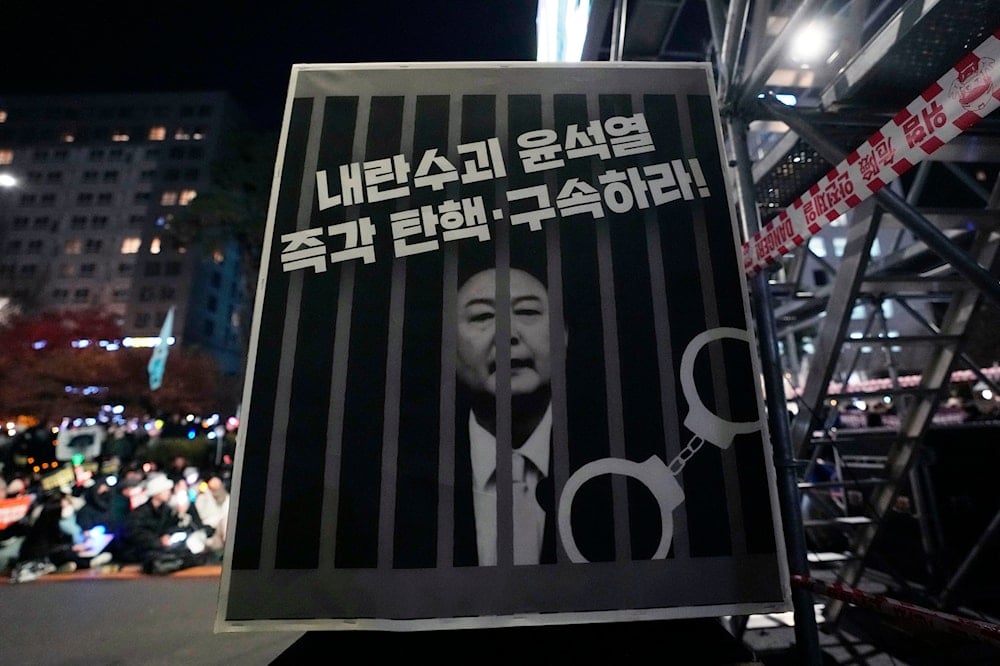South Korean parliament votes in favor of impeaching President Yoon
South Korea’s parliament has voted to impeach President Yoon Suk Yeol in response to his declaration of martial law on December 3.
-

An image depicting an imprisoned South Korean President Yoon Suk Yeol is displayed during a rally to demand his impeachment outside the National Assembly in Seoul, South Korea, on December 13, 2024. (AP)
South Korea’s parliament has voted to impeach President Yoon Suk Yeol following his declaration of martial law on December 3. The vote, with 204 lawmakers in favor, suspends Yoon from his presidential duties while the Constitutional Court determines whether to remove him from office permanently.
Prime Minister Han Duck-soo, appointed by Yoon, is set to assume the role of acting president of South Korea. The Speaker of Parliament has urged both the government and lawmakers to collaborate in stabilizing the country’s economy and foreign relations during this challenging time.
The Speaker also emphasized the need for the prompt appointment of Constitutional Court judges to accelerate the judicial process.
Earlier today, South Korean lawmakers held a second vote on an impeachment motion against President Yoon Suk Yeol this Saturday. Investigations are underway into accusations of rebellion linked to his controversial martial law decree issued on December 3, which has sparked significant political unrest in the nation.
Last Saturday, Yoon narrowly avoided impeachment after a majority of lawmakers from the ruling party skipped the vote. Whether the People Power Party members will adopt the same approach this time remains uncertain. Meanwhile, public protests against Yoon have grown stronger, and his approval rating has significantly dropped.
For the past two weeks, tens of thousands of people have braved the cold, flooding the streets of Seoul each night to demand the president's removal and arrest. They have chanted slogans, sung, danced, and waved K-pop light sticks in protest. Smaller groups of Yoon's conservative supporters, numbering in the thousands, have also gathered in the city to oppose the impeachment efforts. Both sides' rallies have remained mostly peaceful.
“Many people are using idol light sticks even though they are expensive. I think it’s become a really great culture because people are bringing their most precious and brightest possessions to express their will and opinions,” said Hong Gayeong, a 29-year-old protester, near the National Assembly on Friday night.
Yoon's imposition of martial law, the first in South Korea in over 40 years, lasted just six hours but sparked widespread political upheaval, disrupted diplomatic efforts, and unsettled financial markets. The decree was eventually revoked after parliament unanimously annulled it, forcing Yoon to lift the measure.
Following the declaration of martial law, Yoon deployed hundreds of soldiers and police officers to the parliament in an attempt to block a vote on the decree. However, the forces withdrew after parliament voted to reject it.
The impeachment motion suggests that Yoon “committed rebellion that hurts peace in the Republic of Korea by staging a series of riots," stressing that Yoon's mobilization of military and police forces threatened the National Assembly and the public and disturbed the Constitution.

 3 Min Read
3 Min Read








